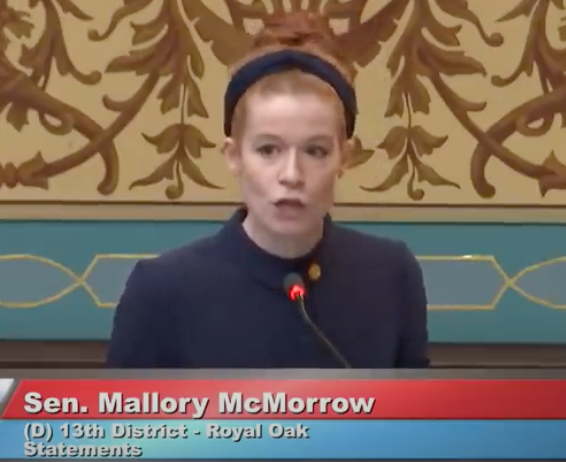Message, Messenger, Audience
October 22, 2012
“Friends, Romans, countrymen, lend me your ears. I come to bury Caesar, not to praise him. The evil that men do lives after them. The good is oft interred with their bones. So let it be with Caesar.”
That’s how Shakespeare opens one of history’s greatest speeches. What a beginning!
“And gentlemen in England now a-bed shall think themselves accursed they were not here, and hold their manhoods cheap whilst any speaks that fought with us upon Saint Crispin’s day.” That’s how he ends another of the world’s most memorable orations.
“I know not what course others may take, but as for me, give me liberty or give me death.” Patrick Henry’s ending is part of our national heritage.
That is how great speeches are constructed. A strong beginning, a convincing middle and a rousing end, delivered with conviction by a speaker with authority, whose goal is to convince an audience open to persuasion. At the moment, this seems a lost art.
The speeches at this year’s Republican and Democratic National Conventions—with the exception of Bill Clinton’s rousing performance and a few others—reflect what has happened to public speaking in America. Angry polemic, gracelessly expressed, delivered to already-converted partisans, is standard fare.
A nation moved by Lincoln at Gettysburg and by FDR’s fireside chats, by Jack Kennedy’s asking what we can do for our country and by Lyndon Johnson’s proclaiming that “We Shall Overcome” deserves better.
Effective public speaking is not rocket science. Twenty-five hundred years ago Aristotle observed that credibility (“ethos”), logic (“logos”) and emotion (“pathos”) underlay all good speeches, and that vivid images and appropriate use of figures of speech would reach the hearts and minds of a targeted audience.
Few of us are called upon, like Winston Churchill in 1940, to revive the self-confidence of a nation, or like Joan of Arc, to encourage one’s compatriots as she was being burned at the stake. We may be Father of the Bride or Maid of Honor, eulogist at a funeral, commencement speaker or recipient of an honor; the basic rules remain the same.
Suiting the talk to the occasion is common sense (“decorum” the ancients called it), but many a Best Man does not realize that the bawdy joke well-received at a Bachelor Party is in poor taste at the Wedding; or as Mitt Romney discovered, the 47% comment that went over well with “true believers” was a disaster before a broader audience.
Good “delivery”—what Demosthenes called the first, second and third requirements for a great speech—has become rare in American life. Nine out of ten of us mumble to the front row rather than boom out to the back row. Many nervously speak quickly before an audience rather than use the slower pace that experts recommend. Good speakers use judicious pauses for emphasis and dramatic impact, raising or lowering the voice as indicated.
Some techniques used by experts can be dangerous for amateurs. In the Carter/Reagan presidential debate, for example, when Carter passionately leveled his fiercest attack, Reagan chuckled, threw his head back and said, “There you go again!” The audience exploded with laughter, and the election was over. An amateur should not try this.
Debates, essays and speeches are different art forms. The Mitt Romney who bored his public with his Convention acceptance speech energized them at the first Presidential debate, while the reverse was the case with President Obama. Ronald Reagan and Bill Clinton excelled at both forms, while neither could write a decent essay.
When, in the Spring of 1963, our friend Bayard Rustin invited my wife and me to have dinner with him and Martin Luther King, Jr., we had just been deeply moved by reading MLK’s extraordinary Letter From Birmingham Jail, one of the most powerful and eloquent missives of all time. Denied stationery in his cell, King poured out his thoughts on toilet paper and in the margins of newspapers, while Birmingham Police Chief Bull Connor (a name out of Restoration Comedy) turned fire hoses and police dogs on non-violent protesters.
King’s letter was a reply to eight white clergymen who called his actions “unwise and untimely.” King’s evocation of St. Paul and of Socrates, Aquinas and Martin Buber—his citing Shadrach, Meshach and Abednego’s refusal to obey the laws of
Nebuchadnezzar—and his portrayal of the terror and despair of black children throughout the South, should be required reading in every American school.
When we gave our contribution to help plan the Washington protest for later that summer, I hid my fear that bringing together vast numbers of Civil Rights activists and red-necked southern police could result in a counter-productive riot. The Reverend was certain that the event’s tone would be spiritual. And his I Have a Dream speech became one of our nation’s greatest orations.
I Have a Dream has been called the most important and influential speech of the 20th century. Addressing a transfixed audience, standing resolutely, his back to the Lincoln Memorial, King began his speech with “Five score years ago, a great American, in whose symbolic shadow we stand today, signed the Emancipation Proclamation.”
What a man, what a setting, what an opening!
After evoking the Declaration of Independence and the Constitution as “promissory notes,” he declared that America had defaulted, the check had come back marked “insufficient funds”; and he proclaimed (like Amos in the Old Testament) that he would not be satisfied until “justice rolls down like waters and righteousness like a mighty stream.” He went on to describe his dream (“deeply rooted in the American Dream”), echoing the powerful resonance of the Biblical Isaiah. He cited “My country ‘tis of thee” and finished with the old Negro spiritual refrain “Free at last! Free at last! Thank God Almighty, we are free at last!” And the nation responded by supporting Lyndon Johnson’s Civil Rights legislation.
In the classical world, Aeschines warned the Athenian Assembly of threats from Philip II of Macedon, and everyone commented on how eloquently Aeschines spoke. Demosthenes then rose to give his Philippic, and the Assembly shouted, “Let us march against Philip!”
Studying memorable speeches can be helpful, and educational as well. The greatest secular speech of all time, Pericles’ Funeral Oration as reported by Thucydides 2,600 years ago, conveys ideas we would do well to ponder today.
Think of our Millionaires’ Congress: Pericles says, “Advancement in public life falls to reputation for capacity, class considerations not being allowed to interfere with merit; nor does poverty bar the way. If a man is able to serve the state, he is not hindered by the obscurity of his condition.”
Consider the mega yachts of our hedge funders on the political Right, as Pericles notes, “We cultivate refinement without extravagance and knowledge without effeminacy; wealth we employ more for use than for show.” How many on our political Left could dispute his point that, “The real disgrace of poverty is not in owning to the fact but in declining the struggle against it.”
Lou Gehrig’s “Farewell to Baseball,” at which I cried as a young boy, expressed a modesty, a gratitude for the good things life had given him, that is unthinkable from our gladiators of today.
Studying failures—or lost opportunities—may be even more helpful to mistake-prone amateurs. Studying great “saves” can be instructive, too. Richard Nixon’s emotional “Checkers” speech, for example, effectively ended talk of the embarrassing “Nixon Scandal Fund.” Mitt Romney’s self-confident, authoritative manner in the first Presidential debate of 2012, his eye-contact with the audience and his smiling gazes at his adversary, did much in the audience’s view to overcome the weakness of his argument.
The failure of Obama’s advisors and “handlers” to prepare him adequately for the first debate will be notable in political history. David Axelrod, Obama’s chief advisor, noted after the debate, “The president showed up with the intent of answering questions and having a discussion. Romney showed up to deliver a performance, and he delivered a very good performance.” As Reagan’s speech writer Peggy Noonan said years ago, “A speech is part theater and part political declaration,” and Axelrod should have listened.
When Axelrod was asked why Obama did not address Romney’s “47 per cent” gaffe, he replied, “The president obviously didn’t see the appropriate opportunity.” The appropriate opportunity? O’s opening statement could have been, “Governor Romney is concerned about some of us; I am concerned about all Americans, including the 47 per cent.”
O’s talk petered out. My suggestion for an ending would have been: “We have started the recovery from the disaster we inherited; with your support we will finish it.”
Michelle Obama’s Convention speech was widely praised, and the audience came away feeling that this good woman loved her husband. Necessary but not sufficient! I would have added to her remarks: “The man I live with may look calm, but he spends sleepless nights over our casualties in Iraq and Afghanistan, and agonizes over students who can’t find jobs and unemployed workers whose insurance is running out.”
Martin Luther King, Jr. wrote his own sermons and speeches. John F. Kennedy’s were written by Ted Sorensen, Ronald Reagan’s were by Peggy Noonan, Barack Obama’s by Jon Favreau. Franklin Roosevelt corrected his own talks, but the first drafts were written by skilled writers like Sam Rosenman, Robert Sherwood, Archibald Macleish and others. If you get help for a major talk, or have someone prepare a draft, you are in good company. But writing your own material can not only be fun, but also educational. E.M. Forster’s comment, “How do I know what I think until I hear what I say?” states it clearly.
Plunge in and write your own; but remember Aristotle’s “ethos,” “logos” and “pathos”; Cicero’s “decorum”; Demosthenes’ “delivery”; and the one attribute of all great speeches—say something worth saying!



